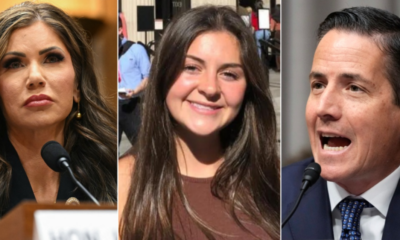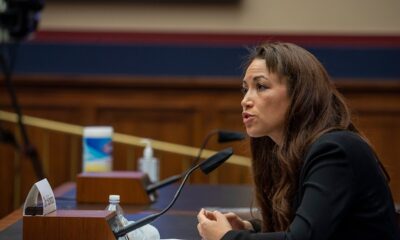Health
Breastfeeding ban: Georgia mother is told she can’t nurse her baby at waterpark, sparking debate
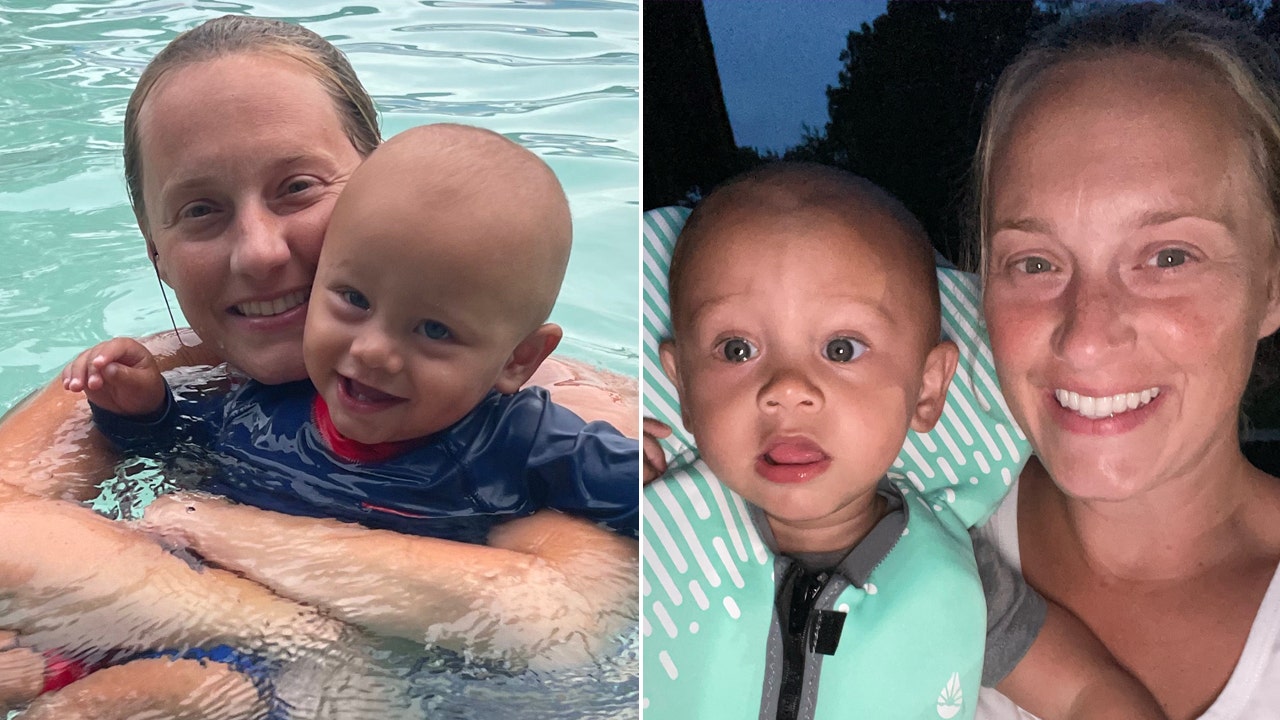
A Georgia mother said she was recently told she could not breastfeed her baby at a waterpark.
Tiffany Francis described the incident in a public Facebook post, sparking debate about potential discrimination against nursing mothers who breastfeed their babies in public.
BABY NAME TRENDS FOR 2023 INCLUDE A NATURE FOCUS, THE USE OF VINTAGE NAMES AND MORE
“My son is 11 months old and when it was getting to be his nap time, like I do every visit, I got in the Lazy River to nurse him to sleep,” she wrote. “He likes motion to sleep, he sleeps well in the car or swing, so he will also sleep in the Lazy River.”
But the woman shared that a lifeguard at Rigby’s Water World in Warner Robins, Georgia, told her she could not breastfeed in the water.
BEST FOR BABY AND MOTHER? AAP’S NEW GUIDELINES ON NURSING HAVE MOMS IN A QUANDARY
“I kind of laughed because I thought he was just making a joke in very poor taste,” Francis wrote. “Then he got on the radio and had a lady come and tell me I wasn’t allowed.”
She added, “I asked her if it was posted somewhere and she told me that it was posted in the rules out front, so I got out of the Lazy River and I went to read the rules.”
A Georgia mother, pictured with her son, said she was recently told she could not breastfeed her 11-month-old son in the Lazy River at a waterpark. The facility later issued an apology to her. (Tiffany Francis)
There was no rule stating that breastfeeding wasn’t allowed, Francis said.
When Francis asked to speak with a manager, he told her one of the rules stated, “No food or drinks in the water.”
“I asked, ‘So my boobs aren’t allowed in the water?’” Francis said.
“Imagine all the bodily fluids being excreted into the water, but they’re worried about breastmilk when the baby was latched, my breast was out of the water, and the milk was only going into [my] baby’s mouth,” she wrote.
BABY FORMULA SHORTAGE: WHY MANY MOTHERS CAN’T BREASTFEED
“But really, it wasn’t even about him eating in the water — it was about it making other guests uncomfortable,” she also wrote.
Francis attempted unsuccessfully to get a refund — then ultimately left the park, she said.
“I left crying because I was told I couldn’t feed my child,” she said.
Fox News Digital on Tuesday spoke with Steve Brown, general manager of Rigby’s Water World, who confirmed that Francis was asked to stop breastfeeding in the water — but he said the company has since changed its policy.
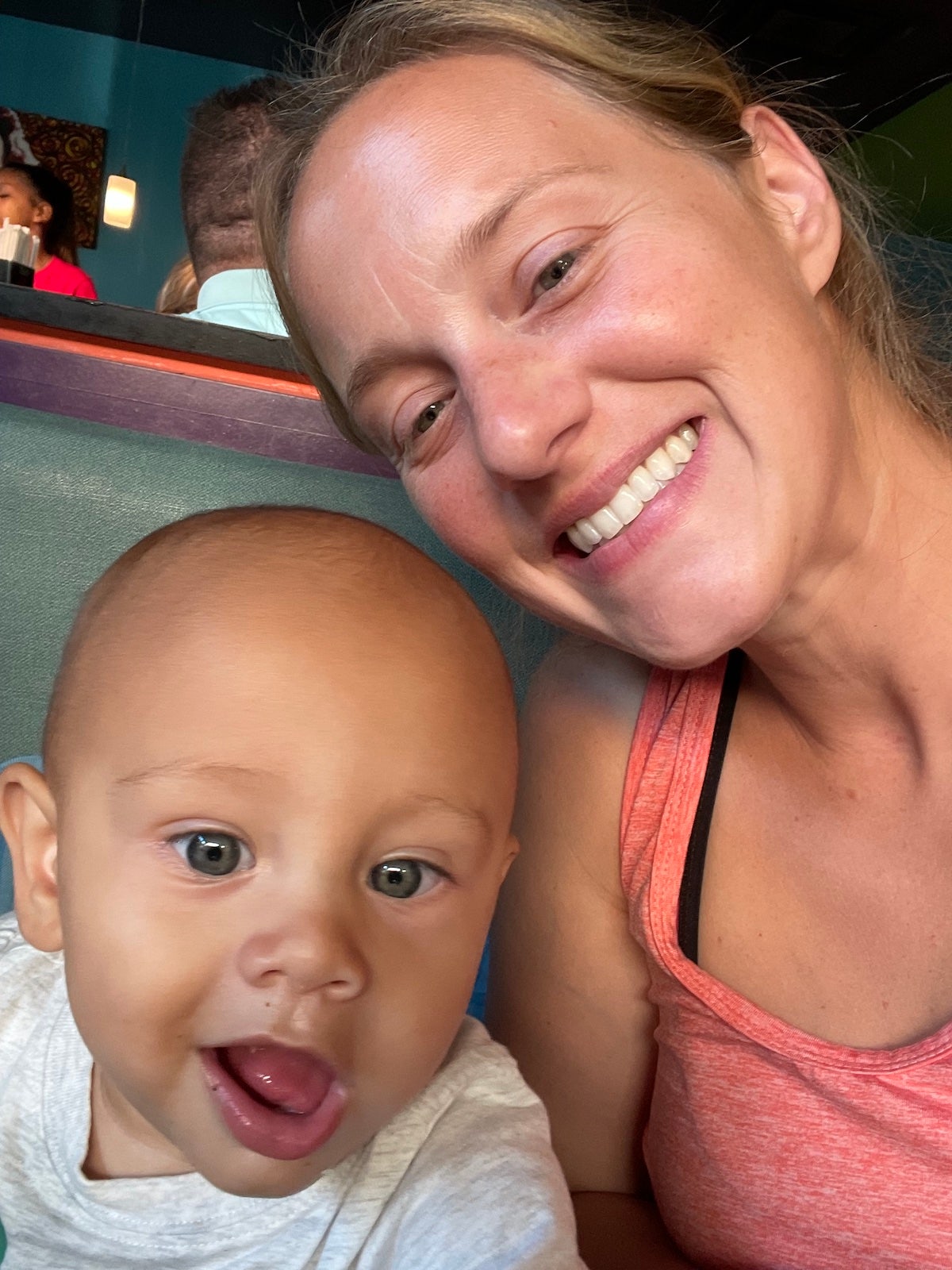
Tiffany Francis, shown with her child, described the incident in a public Facebook post, sparking debate about potential discrimination against mothers who breastfeed in public. (Tiffany Francis)
“At the time, we had a policy in place that didn’t allow mothers to breastfeed in the pools, coinciding with health code policies,” he said.
“We try to maintain a safe, fun, enjoyable environment for guests, and our policies reflect that.”
After Rigby’s learned about the laws protecting breastfeeding mothers, the company decided to change the policy that same day.
“We made a mistake, and I feel that we did the right thing to make a positive change.”
“As a water park operator, I don’t know every law in the book,” Brown said. “Once I was made aware of how the law was written, I realized we were misguided.”
He added, “I sent a message on social media apologizing, and said we would change our policy and train our staff to follow those new guidelines. We made a mistake, and I feel that we did the right thing to make a positive change.”
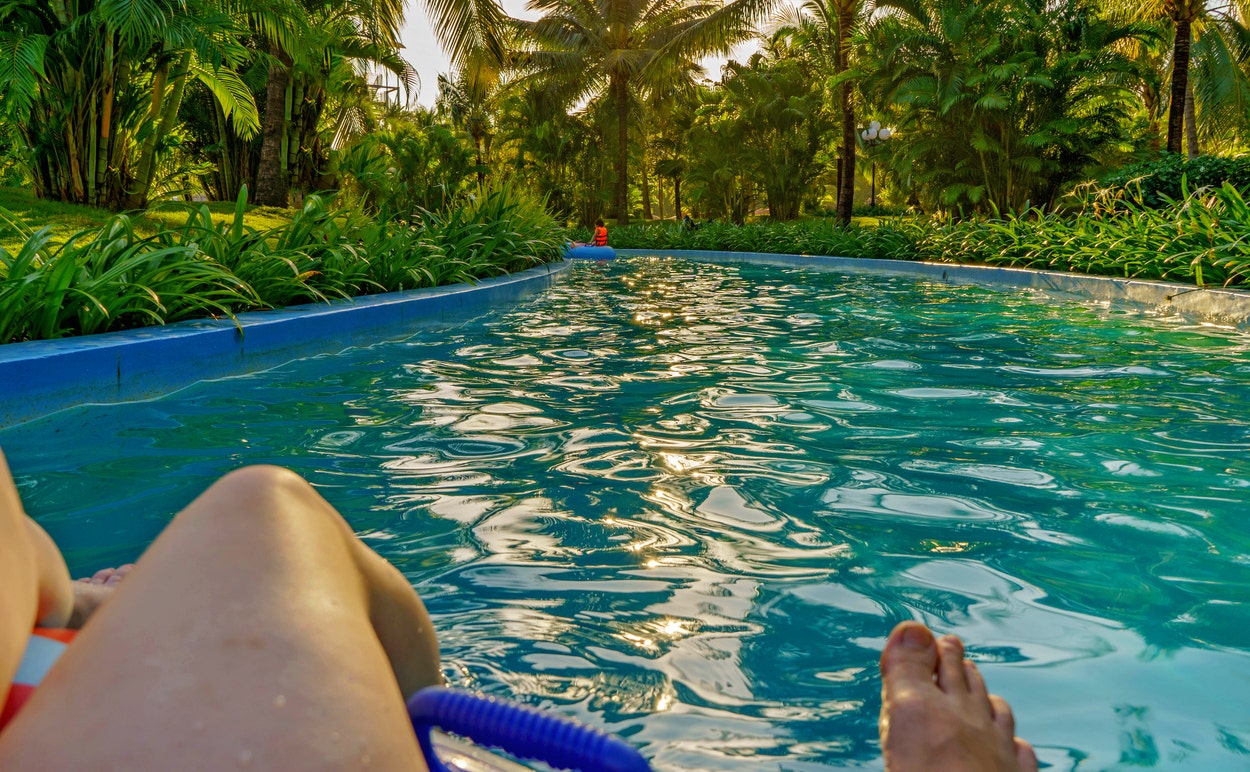
After Rigby’s learned about the laws protecting breastfeeding mothers, the company decided to change the policy that same day. (iStock)
Georgia code 31-1-9 states that “the breastfeeding of a baby is an important and basic act of nurture, which should be encouraged in the interests of maternal and child health. A mother may breastfeed her baby in any location where the mother and baby are otherwise authorized to be.”
Francis later shared with Fox News Digital that after her Facebook post circulated, she received an apology from Steve Rigby, owner of Rigby’s Water World, as well as one from the general manager, for what happened — but she felt the apologies were “insincere” and only a result of the “backlash they received on social media.”

A young mother is shown breastfeeding her baby. Breastfeeding offers a bevy of benefits for both mom and baby. (iStock)
The apology, she said, noted “that while it’s not the best practice, feeding is now allowed anywhere.”
However, Francis said that in her view, “both were backhanded, slap-in-the-face apologies.”
“Emotional bonding is another reason many mothers choose to breastfeed.”
She added, “Steve Rigby said, ‘I’m sorry,’ but then excused the behavior of his employee instead of just actually apologizing.”
Health benefits of breastfeeding
Breastfeeding offers a bevy of benefits for both mom and baby, experts agree.
For babies, nursing reduces the risk of SIDS and also protects against certain illnesses and diseases, such as stomach viruses, colds, respiratory infections, urinary tract infections, ear infections and meningitis, according to Olivia DeLong, senior health editor at BabyCenter in Atlanta, Georgia.

“If you feel the need to say something to a breastfeeding mother, please say something positive,” Francis said after her experience. (iStock)
For mothers, breastfeeding can also decrease the likelihood of developing illnesses such as type 2 diabetes, osteoporosis, rheumatoid arthritis and obesity, she added.
“Some women find they feel relaxed while breastfeeding, since nursing triggers the release of oxytocin — the ‘love hormone,’” DeLong told Fox News Digital.
“Emotional bonding is another reason many mothers choose to breastfeed.”
RHODE ISLAND HOSPITAL CO-LAUNCHES FIRST PASTEURIZED BREAST MILK PROGRAM IN STATE
The American Academy of Pediatrics (AAP) recommends exclusive breastfeeding for the first six months, then continued breastfeeding after introducing solid foods. It also supports the breastfeeding of a child for up to two years.
‘Women continue to face challenges’
“Unfortunately, discrimination against breastfeeding parents is a pervasive issue,” Christie Rosenthal, a lactation consultant with The Lactation Network in Chicago, Illinois, told Fox News Digital.
“I left crying because I was told I couldn’t feed my child.”
“Women continue to face challenges at work and in society,” she said.
“Breastfeeding in public continues to be a challenge for many people — even though it’s protected by law — and friends, family and sometimes partners may express criticism of the breastfeeding parent’s choice to breastfeed.”
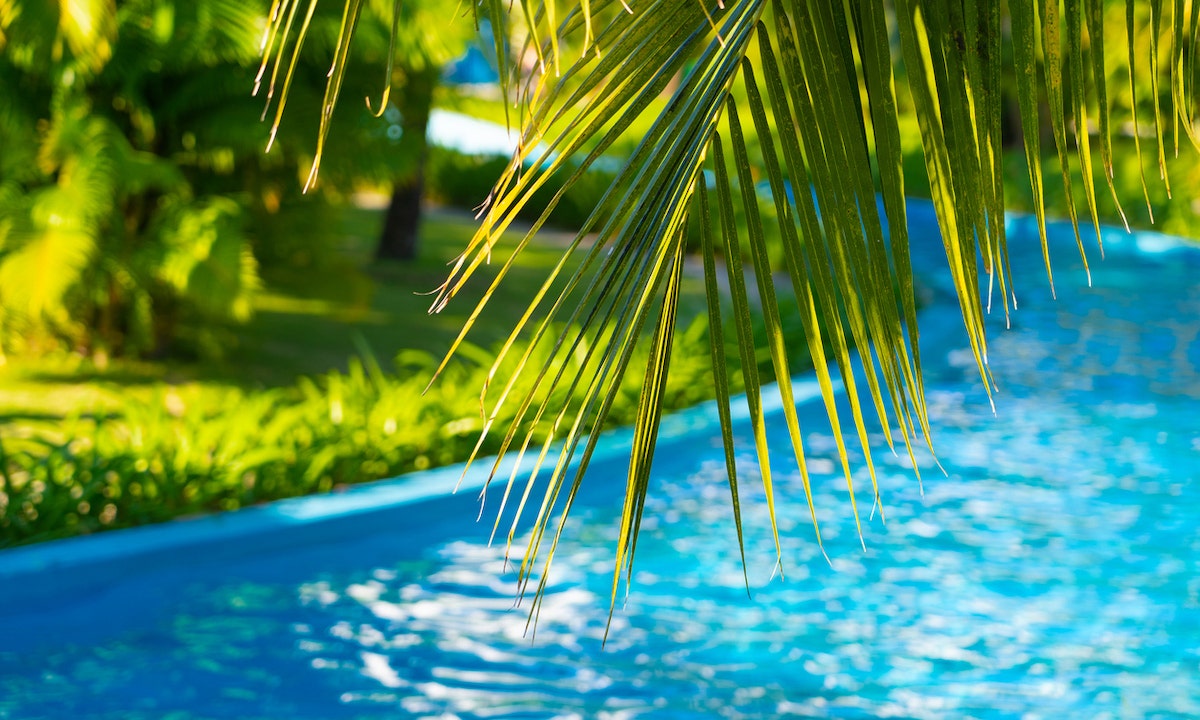
The woman shared that while she was in the Lazy River nursing her son, a lifeguard told her she couldn’t breastfeed in the water. (iStock)
“It’s important to remember that moms are allowed to breastfeed in public,” Rosenthal said.
“So, others do not have a right to ask a mother to leave a public space while breastfeeding.”
DeLong agreed that many moms face public shaming for breastfeeding.
BABY FORMULA SHORTAGE: WHICH FOODS AND TECHNIQUES BOOST BREAST MILK PRODUCTION?
“In new research from BabyCenter, moms most commonly cited breastfeeding in public as the reason they were shamed by others,” she told Fox News Digital.
“This especially affects younger moms, as one in three Gen Z moms who say they’ve been shamed in public say it was from someone complaining about their child nursing.”
‘The right to feed your baby’
For mothers who experience a situation such as the one Francis described, Rosenthal emphasized that they shouldn’t feel the need to respond to anyone who criticizes them for public breastfeeding.
“If you feel comfortable, you can share that you have the right to feed your baby in public,” she said.
“If you’re at a place of business, ask to speak to the manager and file a complaint with corporate headquarters.”
Rosenthal added, “If you feel in danger, move away from the person criticizing you and look for people who can support you.”
‘Say something positive’
“It’s just really sad that in this day and age, women are still scared to breastfeed in public due to what others may say to them or the looks they may receive,” Francis told Fox News Digital.
CLICK HERE TO SIGN UP FOR OUR HEALTH NEWSLETTER
“I urge other moms to learn the law to defend themselves if faced with any issues regarding breastfeeding their children,” she added.
“Public breastfeeding is protected in all 50 states.”
“Moms are allowed to breastfeed in public. Others do not have a right to ask a mother to leave a public space while breastfeeding.”
Not everyone supported Francis’ stance.
One woman responded on Facebook, “I breastfed both of my children but would have NEVER done so at a recreational park, in the water that is full of chemicals (and probably urine, etc.). How safe is that for your child?”
Another woman wrote, “I personally wouldn’t want to swim in a body of water that I’m witnessing bodily fluid probably go into right in front of me.”
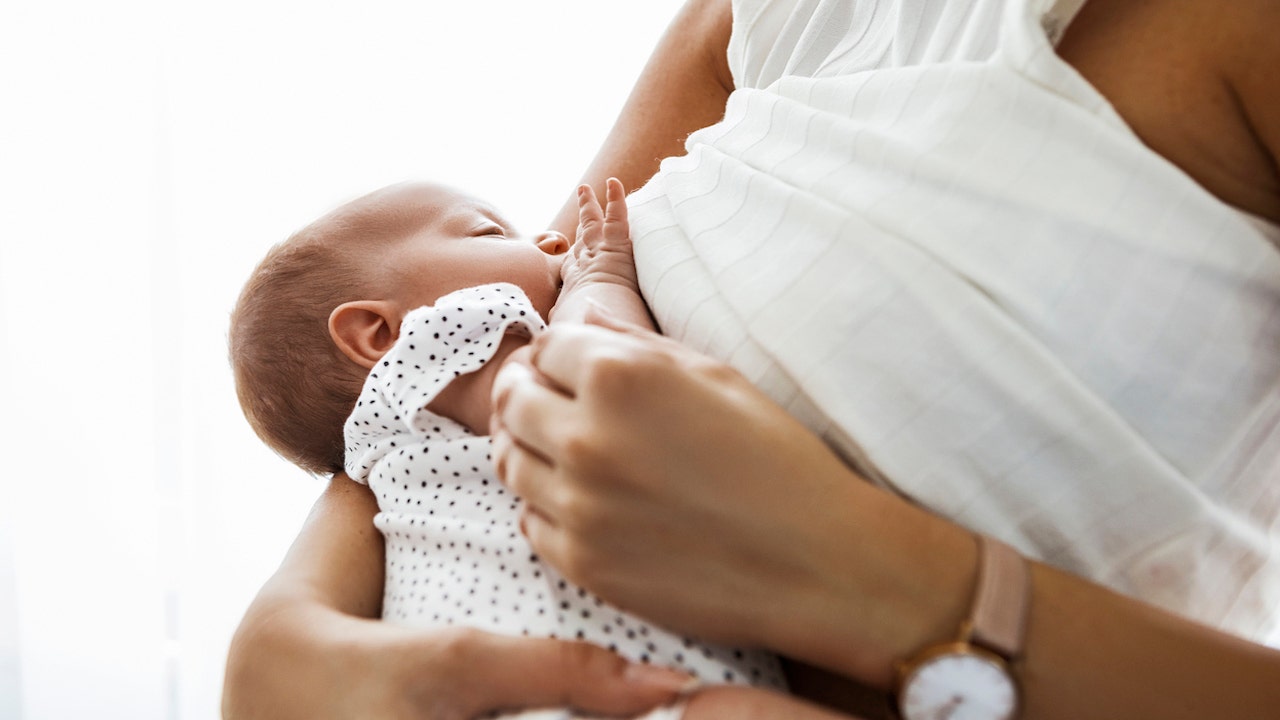
In new research from BabyCenter, moms most commonly cited breastfeeding in public as the reason they were shamed by others. (iStock)
Most responses voiced support, however.
“Not everyone has been kind on this subject, but I truly appreciate all the support I’ve received from other mothers, as well as dads and even those without children,” Francis told Fox News Digital.
“With it being such a sensitive topic, if you feel the need to say something to a breastfeeding mother, please say something positive,” she said.
“Encourage her, tell her she’s doing great.”
Added Francis, “Because I guarantee that your comment, whether positive or negative, will impact her for a lifetime.”

Health
Jennifer Hudson Lost 80-Lbs Without Depriving Herself—Learn Her Secrets

Sign Up
Create a free account to access exclusive content, play games, solve puzzles, test your pop-culture knowledge and receive special offers.
Already have an account? Login
Use left and right arrow keys to navigate between menu items.
Use escape to exit the menu.
Health
Kennedy’s Plan for the Drug Crisis: A Network of ‘Healing Farms’

Though Mr. Kennedy’s embrace of recovery farms may be novel, the concept stretches back almost a century. In 1935, the government opened the United States Narcotic Farm in Lexington, Ky., to research and treat addiction. Over the years, residents included Chet Baker and William S. Burroughs (who portrayed the institution in his novel, “Junkie: Confessions of an Unredeemed Drug Addict”). The program had high relapse rates and was tainted by drug experiments on human subjects. By 1975, as local treatment centers began to proliferate around the country, the program closed.
In America, therapeutic communities for addiction treatment became popular in the 1960s and ’70s. Some, like Synanon, became notorious for cultlike, abusive environments. There are now perhaps 3,000 worldwide, researchers estimate, including one that Mr. Kennedy has also praised — San Patrignano, an Italian program whose centerpiece is a highly regarded bakery, staffed by residents.
“If we do go down the road of large government-funded therapeutic communities, I’d want to see some oversight to ensure they live up to modern standards,” said Dr. Sabet, who is now president of the Foundation for Drug Policy Solutions. “We should get rid of the false dichotomy, too, between these approaches and medications, since we know they can work together for some people.”
Should Mr. Kennedy be confirmed, his authority to establish healing farms would be uncertain. Building federal treatment farms in “depressed rural areas,” as he said in his documentary, presumably on public land, would hit political and legal roadblocks. Fully legalizing and taxing cannabis to pay for the farms would require congressional action.
In the concluding moments of the documentary, Mr. Kennedy invoked Carl Jung, the Swiss psychiatrist whose views on spirituality influenced Alcoholics Anonymous. Dr. Jung, he said, felt that “people who believed in God got better faster and that their recovery was more durable and enduring than people who didn’t.”
Health
Children exposed to higher fluoride levels found to have lower IQs, study reveals
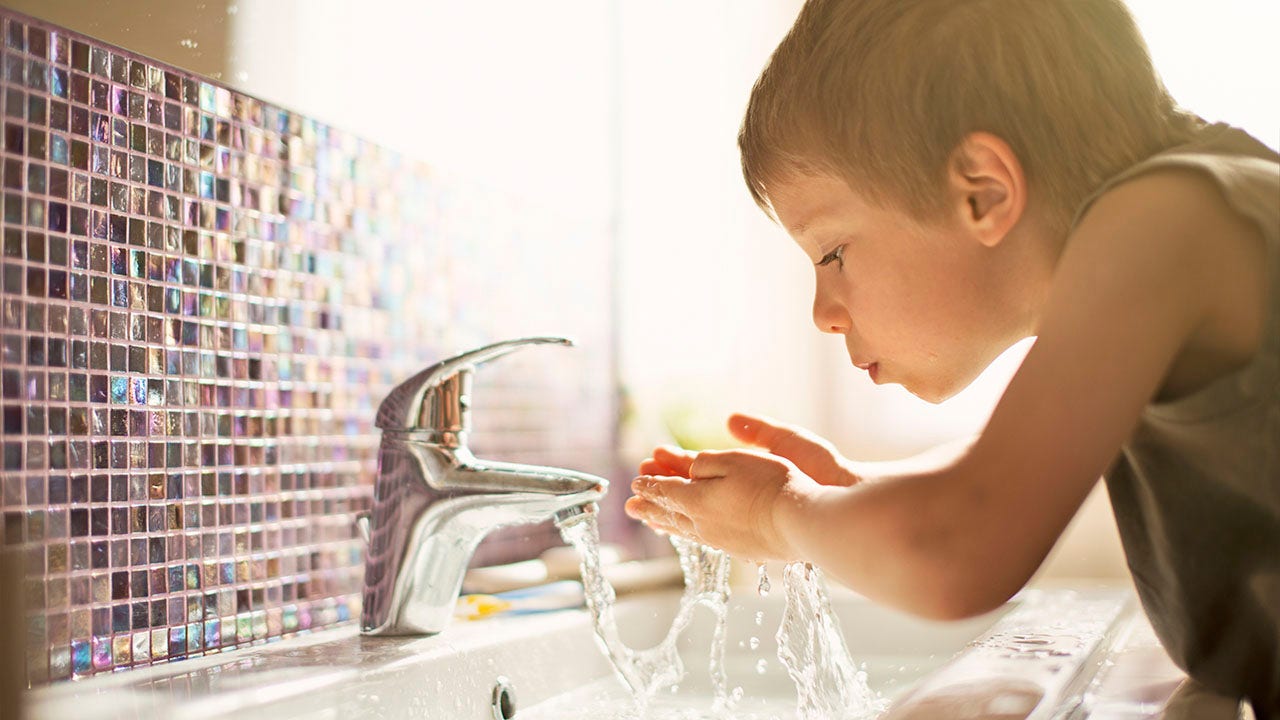
The debate about the benefits and risks of fluoride is ongoing, as RFK Jr. — incoming President Trump’s pick for HHS secretary — pushes to remove it from the U.S. water supply.
“Fluoride is an industrial waste associated with arthritis, bone fractures, bone cancer, IQ loss, neurodevelopmental disorders and thyroid disease,” RFK wrote in a post on X in November.
A new study published in JAMA Pediatrics on Jan. 6 found another correlation between fluoride exposure and children’s IQs.
RFK JR. CALLS FOR REMOVAL OF FLUORIDE FROM DRINKING WATER, SPARKING DEBATE
Study co-author Kyla Taylor, PhD, who is based in North Carolina, noted that fluoridated water has been used “for decades” to reduce dental cavities and improve oral health.
Fluoride exposure has been linked to a variety of negative health effects, yet benefits oral health. (iStock)
“However, there is concern that pregnant women and children are getting fluoride from many sources, including drinking water, water-added foods and beverages, teas, toothpaste, floss and mouthwash, and that their total fluoride exposure is too high and may affect fetal, infant and child neurodevelopment,” she told Fox News Digital.
The new research, led by scientists at the National Institute of Environmental Health Sciences (NIEHS), analyzed 74 epidemiological studies on children’s IQ and fluoride exposure.
FEDERAL JUDGE ORDERS EPA FURTHER REGULATE FLUORIDE IN DRINKING WATER DUE TO CONCERNS OVER LOWERED IQ IN KIDS
The studies measured fluoride in drinking water and urine across 10 countries, including Canada, China, Denmark, India, Iran, Mexico, Pakistan, New Zealand, Spain and Taiwan. (None were conducted in the U.S.)
The meta-analysis found a “statistically significant association” between higher fluoride exposure and lower children’s IQ scores, according to Taylor.
“[It showed] that the more fluoride a child is exposed to, the more likely that child’s IQ will be lower than if they were not exposed,” she said.
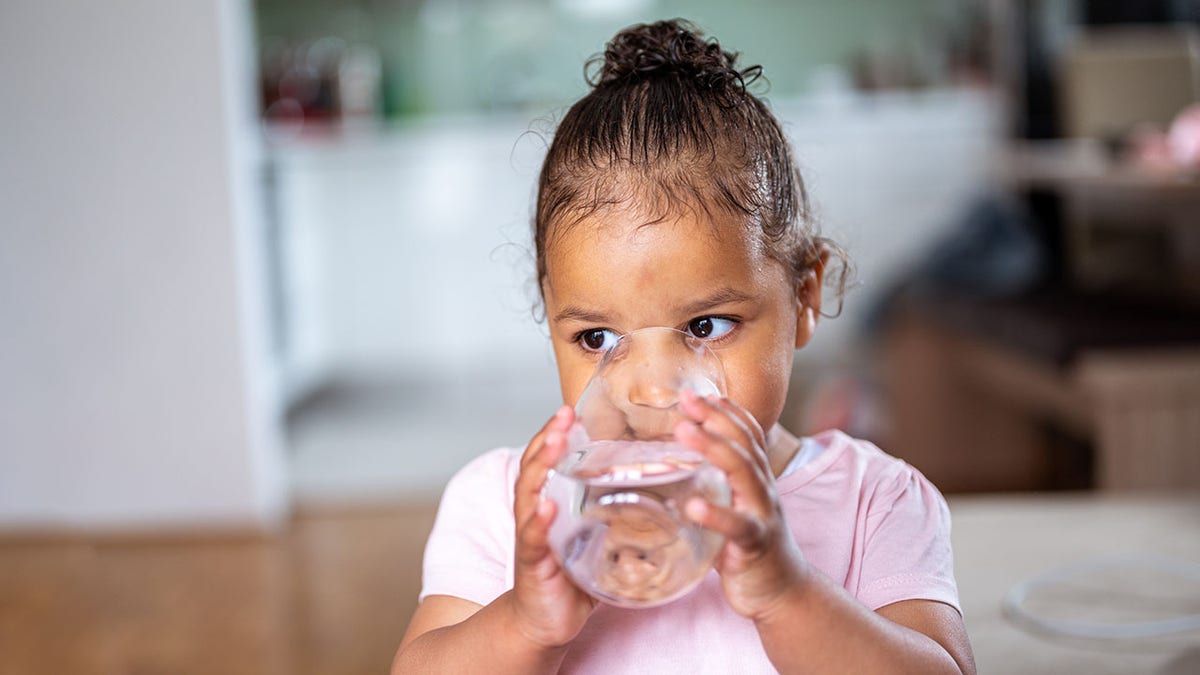
Scientists found a “statistically significant association” between higher fluoride exposure and lower children’s IQ scores. (iStock)
These results were consistent with six previous meta-analyses, all of which reported the same “statistically significant inverse associations” between fluoride exposure and children’s IQs, Taylor emphasized.
The research found that for every 1mg/L increase in urinary fluoride, there was a 1.63-point decrease in IQ.
‘Safe’ exposure levels
The World Health Organization (WHO) has established 1.5mg/L as the “upper safe limit” of fluoride in drinking water.
“There is concern that pregnant women and children are getting fluoride from many sources.”
Meanwhile, the U.S. Public Health Service recommends a fluoride concentration of 0.7 mg/L in drinking water.
“There was not enough data to determine if 0.7 mg/L of fluoride exposure in drinking water affected children’s IQs,” Taylor noted.
FDA BANS RED FOOD DYE DUE TO POTENTIAL CANCER RISK
Higher levels of the chemical can be found in wells and community water serving nearly three million people in the U.S., the researcher noted.
She encouraged pregnant women and parents of small children to be mindful of their total fluoride intake.

Nearly three million people have access to wells and community water with fluoride levels above the levels suggested by the World Health Organization. (iStock)
“If their water is fluoridated, they may wish to replace tap water with low-fluoride bottled water, like purified water, and limit exposure from other sources, such as dental products or black tea,” she said.
“Parents can use low-fluoride bottled water to mix with powdered infant formula and limit use of fluoridated toothpaste by young children.”
For more Health articles, visit www.foxnews.com/health.
While the research did not intend to address broader public health implications of water fluoridation in the U.S., Taylor suggested that the findings could help inform future research into the impact of fluoride on children’s health.
Dental health expert shares cautions
In response to this study and other previous research, Dr. Ellie Phillips, DDS, an oral health educator based in Austin, Texas, told Fox News Digital that she does not support water fluoridation.
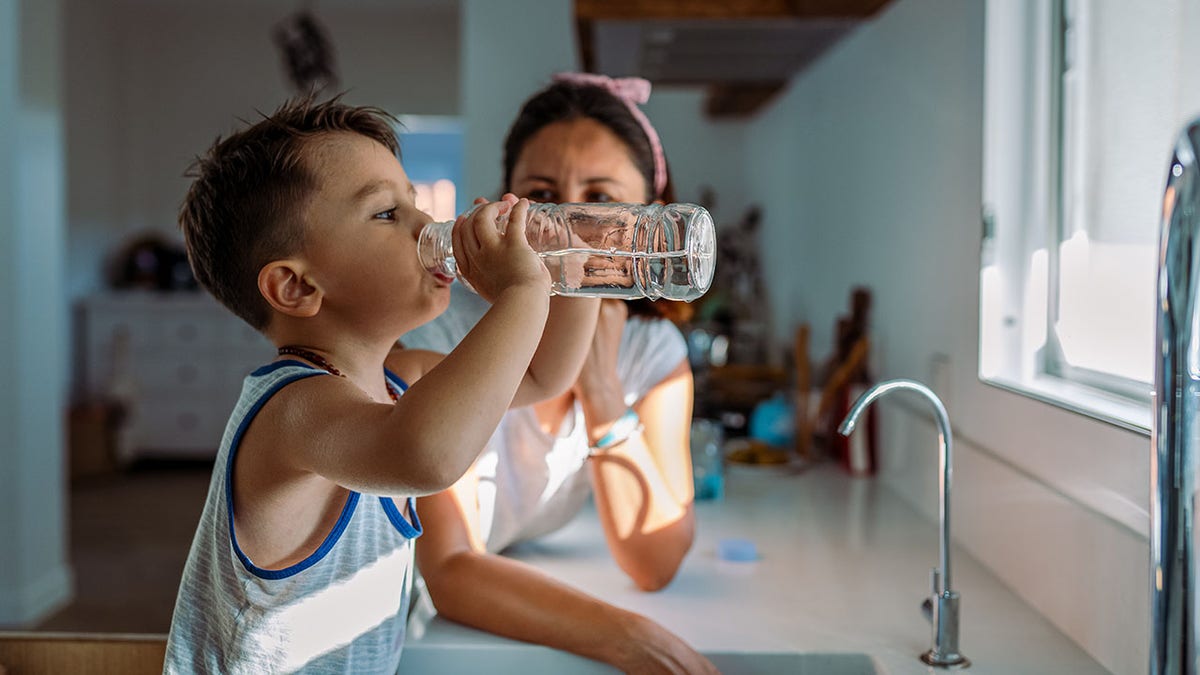
The study researcher encouraged parents of small children to be mindful of their total fluoride intake. (iStock)
“I join those who vehemently oppose public water fluoridation, and I question why our water supplies are still fluoridated in the 21st century,” she wrote in an email.
“There are non-fluoridated cities and countries where the public enjoy high levels of oral health, which in some cases appear better than those that are fluoridated.”
CLICK HERE TO SIGN UP FOR OUR HEALTH NEWSLETTER
Phillips called the fluoride debate “confusing” even among dentists, as the American Dental Association (ADA) advocates for fluoride use for cavity prevention through water fluoridation, toothpaste and mouthwash — “sometimes in high concentrations.”
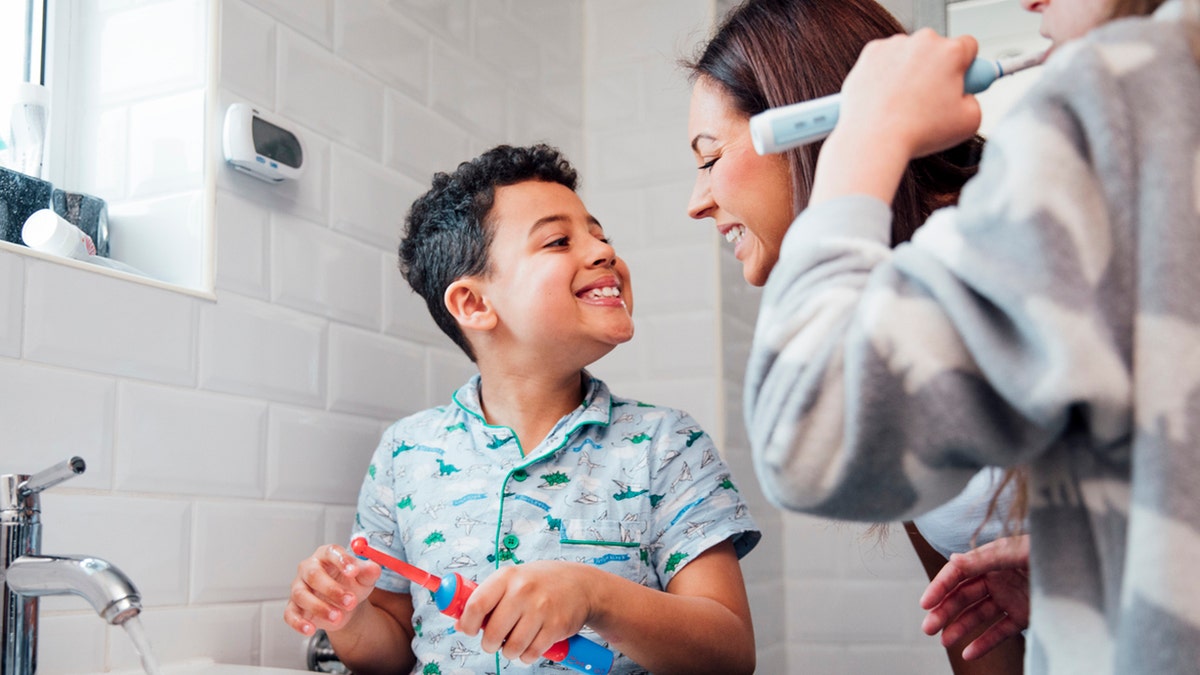
Fluoride is used in water, toothpaste and mouthwash to help prevent cavities. (iStock)
“[But] biologic (holistic) dentists generally encourage their patients to fear fluoride and avoid its use entirely, even if their teeth are ravaged by tooth decay,” she said.
“Topical fluoride is beneficial, while systemic consumption poses risks.”
Phillips encouraged the public to consider varying fluoride compounds, the effect of different concentrations and the “extreme difference” between applying fluoride topically and ingesting it.
“Topical fluoride is beneficial, while systemic consumption poses risks,” she cautioned.
“Individuals must take charge of their own oral health using natural and informed strategies.”
The study received funding from the National Institute of Environmental Health Sciences (NIEHS), the National Institutes of Health (NIH) and the Intramural Research Program.
-
/cdn.vox-cdn.com/uploads/chorus_asset/file/25822586/STK169_ZUCKERBERG_MAGA_STKS491_CVIRGINIA_A.jpg)
/cdn.vox-cdn.com/uploads/chorus_asset/file/25822586/STK169_ZUCKERBERG_MAGA_STKS491_CVIRGINIA_A.jpg) Technology1 week ago
Technology1 week agoMeta is highlighting a splintering global approach to online speech
-

 Science1 week ago
Science1 week agoMetro will offer free rides in L.A. through Sunday due to fires
-
/cdn.vox-cdn.com/uploads/chorus_asset/file/23935558/acastro_STK103__01.jpg)
/cdn.vox-cdn.com/uploads/chorus_asset/file/23935558/acastro_STK103__01.jpg) Technology7 days ago
Technology7 days agoAmazon Prime will shut down its clothing try-on program
-

 News1 week ago
News1 week agoMapping the Damage From the Palisades Fire
-
/cdn.vox-cdn.com/uploads/chorus_asset/file/25826211/lorealcellbioprint.jpg)
/cdn.vox-cdn.com/uploads/chorus_asset/file/25826211/lorealcellbioprint.jpg) Technology7 days ago
Technology7 days agoL’Oréal’s new skincare gadget told me I should try retinol
-
/cdn.vox-cdn.com/uploads/chorus_asset/file/25832751/2192581677.jpg)
/cdn.vox-cdn.com/uploads/chorus_asset/file/25832751/2192581677.jpg) Technology3 days ago
Technology3 days agoSuper Bowl LIX will stream for free on Tubi
-

 Business5 days ago
Business5 days agoWhy TikTok Users Are Downloading ‘Red Note,’ the Chinese App
-
/cdn.vox-cdn.com/uploads/chorus_asset/file/25835602/Switch_DonkeyKongCountryReturnsHD_scrn_19.png)
/cdn.vox-cdn.com/uploads/chorus_asset/file/25835602/Switch_DonkeyKongCountryReturnsHD_scrn_19.png) Technology1 day ago
Technology1 day agoNintendo omits original Donkey Kong Country Returns team from the remaster’s credits



